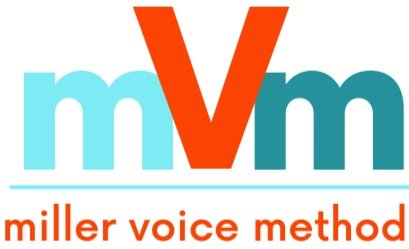FAQs
-
We have Certified teachers who have come to us as experienced teachers and relative newbies to the work and/or teaching.
If you are interested in getting certified, please complete the interest form and we will make a recommendation of your individual path to certification
-
No! We have very successful teachers-in-training who had zero mVm experience prior to starting the Certification program.
Within the course structure you first experience the exercises as a student before you learn how to teach them.
-
If you’re ready to start the application process, complete our interest form.
We will ask your professional reference (someone with knowledge of your work) to a complete a 5-minute questionnaire.
We will arrange a meeting to discuss your interest in mVm Certification, your experience, and answer any further questions you may have about mVm in general or the process toward Certification.
If you have additional questions before starting the application process, please contact mVm Director Kristi Dana at kristi@millervoicemethod.com.
-
Monthly payment plans, work study opportunities, and need-based financial aid are considered on a case by case basis. Please email ali@scottmillerenterprise.com for more information.
-
Our aim at mVm is always to be as transparent as possible about our processes and expectations.
The mVm Teacher Certification program is designed to provide students with the knowledge, training, skill development, and philosophy necessary to become a Certified mVm Teacher, but designation is not guaranteed. Students who have completed the mVm Teacher Certification program are not automatically designated Certified mVm Teachers upon completion of the final intensive.
In order to be designated a Certified mVm Teacher, one must:
- Complete and pass Virtual mVm Certification Levels 1, 2, and 3, including all the assigned homework, quizzes, live classes, and mock teaching requirements.
- Complete and pass the Final In-Person Certification intensive, including all the associated instructional, observational, and teaching hours.
- Demonstrate the ability to embody the mVm exercises with enough proficiency to model those exercises accurately to new students.
- Demonstrate the ability to communicate the mVm philosophy and teach exercises with clarity and specificity.
- Consistently meet mVm’s Classroom & Community Expectations.
Certified mVm Teachers generally possess the following:
- An ability to teach students as a curious, laboratory leader, encouraging students to uncover new knowledge with each attempt.
- The spirit of curiosity and investigation, and an interest in the experience/present moment.
- A desire to keep evolving the method and keep it a living technique. Similarly, an acceptance that some ideas and/or exercises may need to be discarded as the world, and science, evolve.
- A willingness to be in dialogue about their own challenges embodying the mVm teaching principles or the work itself.
- A dedication to transparent communication and self-accountability.
So far, 86% of students have been designated as Certified mVm Teachers within 4 months of beginning the final intensive. Students that have completed the final intensive but are not yet designated are regularly provided opportunities for skill development and support that would enable them to meet the requirements for designation. This additional support comes at no financial cost to the student.
-
We are happy to see mVm being included as a desired pedagogy in job postings alongside Fitzmaurice, Linklater, etc.
mVm is recognized as a contemporary vocal pedagogy of note in the Routledge book: Vocal Traditions: Training in the Performing Arts.
-
Since we have teachers studying from around the world, we will find a time that works for you. Once the student group is determined for the season, we request everyone’s availability and set a weekly class time accordingly.
-
In 2021 and 2022, the In-Person Certification was held at the Lucid Body House in New York City.
In 2023, the In-Person Certification was held in White River Junction, Vermont.
The location of future in-person intensives, like the past ones, are determined in collaboration with the cohort and faculty.
-
The short answer is most definitely.
The breath centric approach to this work has proven to be helpful for singers and complementary to their previous trainings. Some of our Senior mVm Teachers are singers and/or work extensively training singers.
From Scott Miller: “A few years back, I was asked to teach what turned into a couple of years in the Undergraduate Vocal Performance Department (Opera/Musical Theatre tracks). These were exclusively singers. I only used the mVm work with them. Since the approach is so breath focused as well as focused on diagnosing habitual vocal habits that sabotage vocal variance and sustainability, it was a perfect complement for the singers. The added element of scene integration in the mVm work offered solutions that were retainable under the duress of performance. As well, I have a number of singers in my private practice. And finally, at NYU Graduate Acting, where I teach, our actors get trained in singing for three years and my class complements their singing pedagogy perfectly.”
